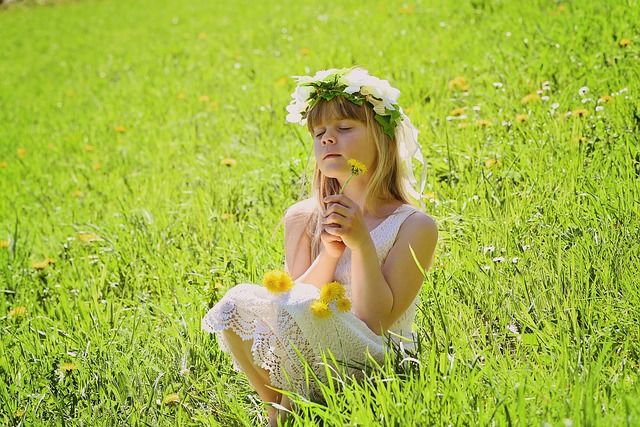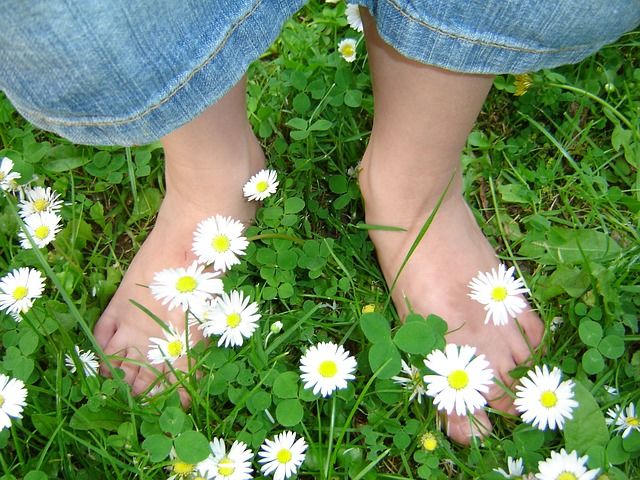Help Your Special Child Get the Most out of Nature-Based Play This Springtime
Updated on June 9, 2016A post by AngelSense, a GPS & voice monitoring solution designed for children with special needs.
Learn more about how AngelSense’s GPS tracking device can help improve your child’s safety and well-being.
Spring is a magical time of year. It’s a time for new beginnings. A time when the air seems to be filled with possibility, and the wonder of the great outdoors is simply too tempting to resist. However for many children with autism, outdoor play can be overwhelming due to heightened sensory sensitivity. Children with autism perceive and process the world in a unique way, and you need to take this into account when planning any spring activities for your child.
In the appropriate outdoor environment, your special child will have the opportunity to experience the world in a meaningful way. And what better time to do that than during spring. The important thing is to provide your child with a non-threatening structure to play and learn outdoors at their own pace and comfort level.

The benefits of nature-based play for children with autism cannot be overlooked. In fact, there is research which clearly highlights the link between a child with autism‘s development and time spent playing outdoors. Other studies indicate that structured outdoor play can help promote a child with autism’s ability to communicate, express emotion and ability to interact while also decreasing sensory sensitivity.
Before you take advantage of the wonderful springtime weather, we’ve put together some tips for creating an outdoor experience your child will enjoy. A carefully selected environment will ensure your child gets the most out of spring, and may even teach them to love nature.
1. Choose a sensory-friendly location
It’s important that wherever you choose to take your child is tranquil and quiet. Make sure there aren’t too many distractions or stimuli your child might find overwhelming. Things to watch out for include any high-pitched sounds from animals or traffic in the vicinity. The location matters more than you think so be sure to give it ample thought. Check whether this is a place where crowds tend to gather, and make sure there isn’t any loud music.

What you can do to find the ideal location for your child:
It may take some time to find the right outdoor spot for your child. You can try using a tool like Google Maps to look for a safe greenzone. Remember you’re looking for a relatively secluded spot without too many distractions or crowds. Some ideas to consider include the lawn of a nearby university. Hotels during off-season may also have distraction-free outdoor play areas you can use so be sure to look into that.
2. Make sure you’ve taken the necessary safety precautions
It’s not uncommon for children with autism to wander, so you may want to find a fenced-in location. Ideally, this should be a fence that cannot be climbed easily by your child. Be sure to comb the area for other distractions that may prove to be problematic like pools of water. We also highly recommend you consider a GPS tracking device such as AngelSense so that you can ensure your child is safe even if they do wander off.
What you can do to keep your child safe:
By being vigilant and paying close attention to your child’s whereabouts you can keep them safe from harm. Alternatively, you may want to look into a safety band which specifies who a stranger should contact in the event that your child does wander off. Other options include an autism ID card which would clearly communicate your child’s medical condition as well as who to contact in an emergency, and a GPS tracker such as AngelSense.
3. Make sure there aren’t any surprises
Children with autism tend to become anxious when surprised or forced to adapt to change. For this reason, you should explain exactly what you’re going to do outdoors. Be as specific as possible, and be sure to outline all the activities you have planned. You may also want to show your child a map or Google Maps view of where you’re going beforehand so your child knows what to expect. Be sure to give your child time to rest between different activities so they can adjust. Transitions can be particularly challenging for children with special needs.
What you can do to prepare your child for nature-based play:
It’s always a good idea to prepare an orientation map which you can use to familiarize your child with the location. You can also explain exactly what activities you have planned at each location. For example, you could point out where you plan to have lunch and where you plan on having a scavenger hunt.
4. Pinpoint specific sensory triggers
Making a child with autism feel comfortable outdoors can be challenging. There are many stimuli your child may respond badly to that are easy to overlook. Important things to look out for include areas with lots of shade. This is essential as many children with special needs are photosensitive. Also, check that the pathways are smooth and non-reflective as your child may be sensitive to textures and bright light.

What you can do to avoid any sensory triggers:
Be sure to evaluate the environment for any potential sensory triggers. You may want to start off with an activity like gardening which is a good way for your child to experience different textures and scents in a controlled and relaxed manner.
5. Identify a go-to soothing zone
Before you set out for the day, be sure your planned location has a ‘soothing zone’. This could be something as simple as a quiet spot removed from all the activity where your child can calm down and re-centre. A good idea for a soothing zone is a bamboo tunnel or tree your child could hide behind. Hammock swings could also come in handy and will help sooth your child.
What you can do to identify a soothing zone:
Evaluate the location thoroughly and look for any structures that will help your child calm down. If you can’t find anything suitable, you may want to bring something from home. Your child’s stroller will work well because it’s something your child is familiar with.
Do you encourage your child to engage in nature-based activities during spring? What tips and advice do you have for parents looking to prepare their special children for outdoor play?
AngelSense is committed to creating a safer world for special needs children. Our cutting-edge GPS tracking and monitoring solution was designed to give parents the peace of mind that their children are safe at all times. You deserve peace of mind too. Join AngelSense Today.
Get peace of mind from AngelSense, the groundbreaking AI-based assistive technology designed to enhance safety and peace of mind for individuals with special needs and their families. Our solution ensures you stay connected with your loved ones, empowering a higher level of independence while maintaining safety. Learn more about how AngelSense can make a difference for your family.


